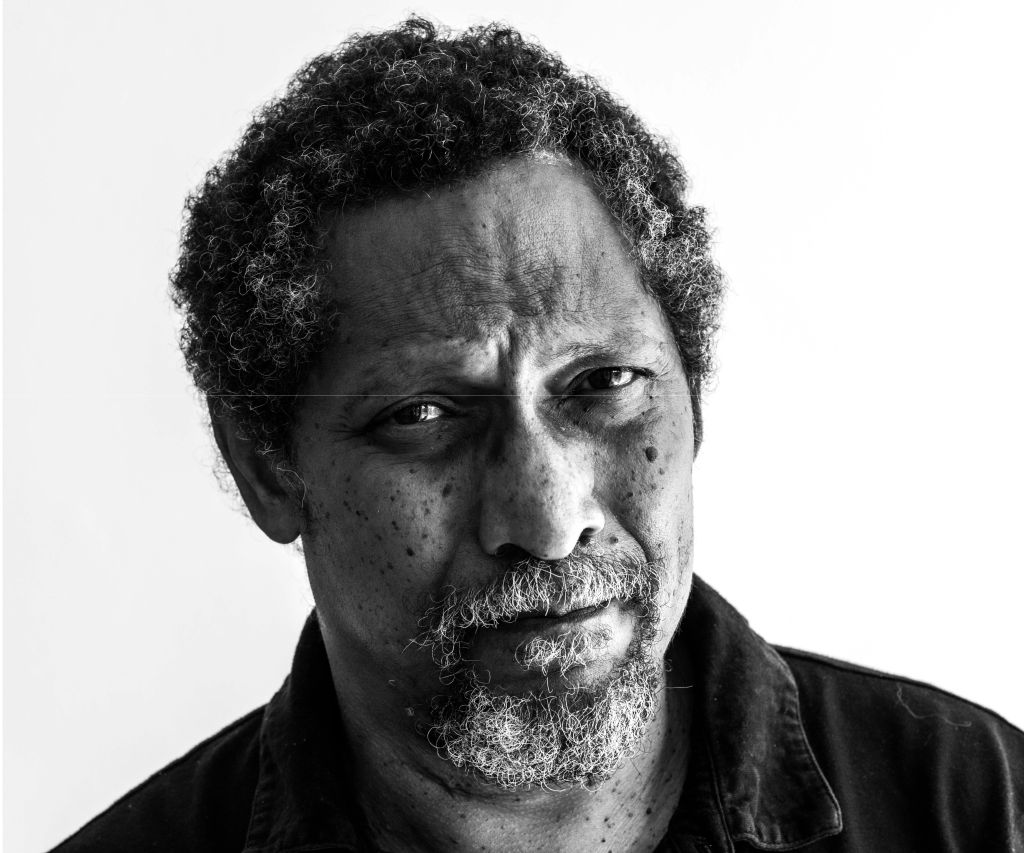2022 Thomas Wolfe Prize: Percival Everett

Has there ever been an American novelist as allergic to the pigeon-hole as Percival Everett? In his hands, the novel form is as elastic as silly putty. Equally at home in the satirical, the thrilling, and the tender, Percival Everett is the author of more than thirty novels, short story collections, and books of poetry, including the forthcoming Dr. NO (2022); The Trees (2021), which won the Anisfield-Wolf Book Award for fiction and has been long listed for the 2022 Booker Prize; Telephone (2020), a finalist for the Pulitzer Prize in fiction; So Much Blue (2017); I Am Not Sidney Poitier (2009); and Erasure (2001).
Everett’s stories have appeared in the Pushcart and Best American anthologies, and been featured on NPR’s Selected Shorts. His many honors include the Ivan Sandrof Lifetime Achievement Award from the National Book Critics Circle, the Dos Passos Prize, the PEN Center USA Award for Fiction, the PEN Oakland/Josephine Miles Literary Award, the Hurston/Wright Legacy Award for Fiction, and the Academy Award in Literature from The American Academy of Arts and Letters.
Percival Everett was born in Fort Gordon, Georgia, and grew up in Columbia, South Carolina. A graduate of the University of Miami, he studied philosophy at the University of Oregon before transferring to Brown, where he earned a master’s degree in fiction. Boundless curiosity propels his writing; everything interests him—science, philosophy, painting, jazz music, fishing, mule training. It seems there’s no system of thought or art with which he neglects to converse, and no facet of American life he deems too sacred to skewer. His novels satirize myriad institutions, traditions, and people, and yet Everett has said, “I don’t take my political concerns, and the philosophical ideas I’m trying to address, to work with me. . . . No one needs to hear my opinion or my message about anything. So I leave behind all that stuff, and I just create the world.”
These worlds—often versions of the American West or South—are alive with trouble, abundant with nonsense, and rich in hilarious and horrifying detail. We watch the goings-on and laugh, then wonder if we ought to be laughing. How can this be happening? we ask. How can reality and absurdity be such close kin? If we sometimes find the novels tricky to navigate, that’s part of the point. In a Paris Review interview, Everett said, “I want a readership that wants to read things because the work is difficult, not because it’s only fun. I want the fun to be in figuring it out. That’s what reading is all about.”
Everett is Distinguished Professor of English at the University of Southern California. He lives in Los Angeles.

